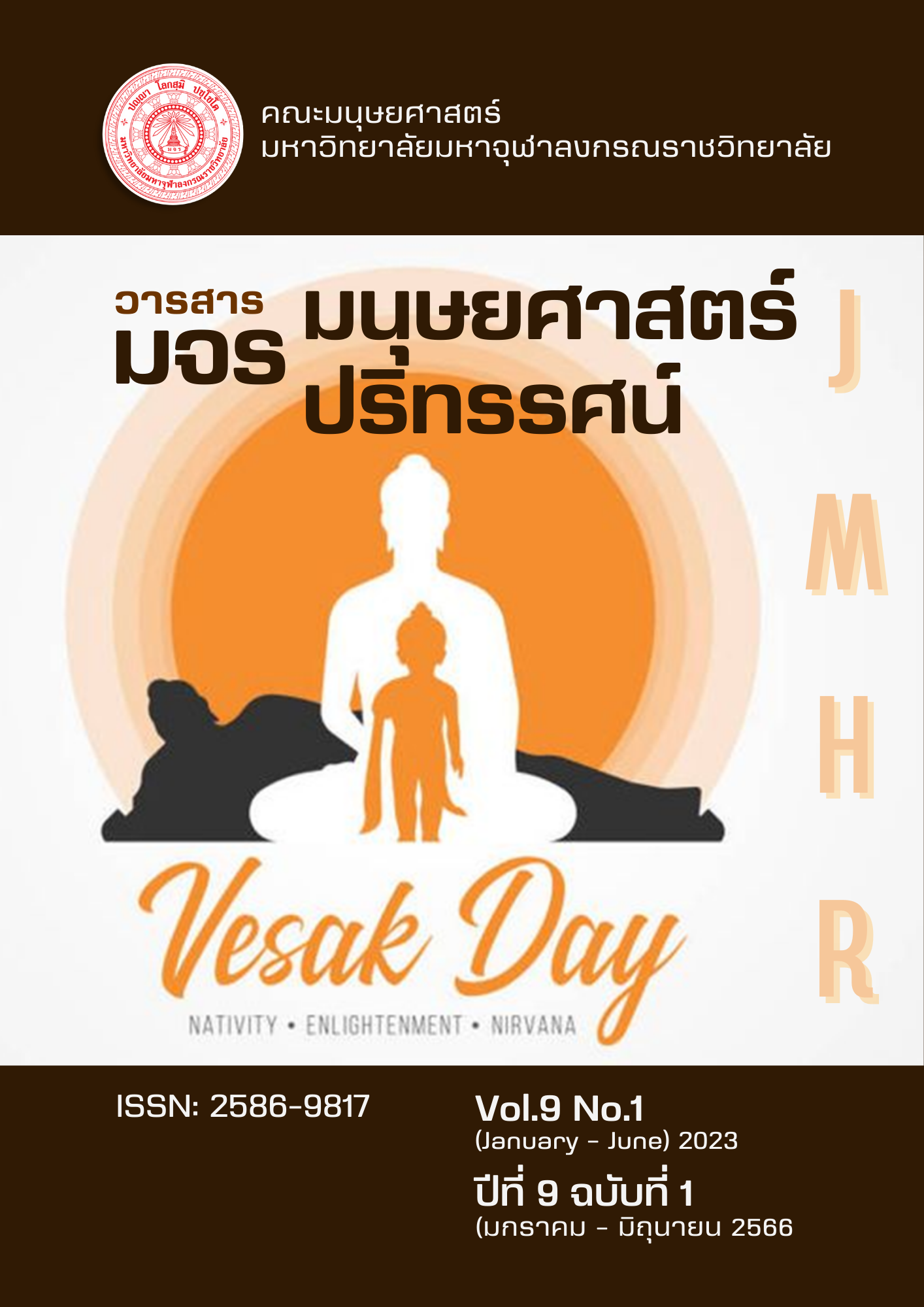Investigation of Self-directed Learning Performance of Undergraduate Students in English Writing Course
คำสำคัญ:
Self-directed Learning Performance, Undergraduate Students, English Writing Courseบทคัดย่อ
This study aimed 1. to investigate self-directed learning performance (i.e. self-management, self-monitoring, using additional learning tools, seeking assistance from others, and motivation) of undergraduate students with three different levels of writing proficiency (high, medium, and low) in English writing course and 2. to compare self-directed learning performance of undergraduate students with different levels of writing proficiency. This study used a mixed method; quantitative and qualitative in order to respond to the objectives of the study. The participants in this study were fifty-three English major students who studied Academic Writing course. The data were collected by using self-directed learning performance questionnaire and semi structured interview. The data were analyzed by using percentage, means, standard deviation, F-test, and thematic analysis.
The findings were as follows:
- Self-directed learning performance of the students with high writing proficiency was at high level in the aspects of self-management, self-monitoring, using additional learning tools, and motivation whereas they had low level of seeking assistance from others. The students with medium writing proficiency had high self-directed learning performance in self-management, self-monitoring, and using additional learning tools while their seeking assistance from others and motivation were at moderate level. For low writing proficiency students, they had high level in using additional learning tools. However, their self-management, self-monitoring, and motivation were at moderate level, and their seeking assistance from others was low.
- The mean scores of self-monitoring and motivation of high writing proficiency students were significantly higher than medium and low proficiency students at .05 level. However, there were no statistically significant differences at .05 level in self-management, using additional learning tools, and seeking assistance from others among three groups of students.
The findings will be beneficial for teachers or researchers who want to enhance students to be self-directed learners in learning English writing by integrating self-directed learning processes such as self-management, self-monitoring, and motivation into their teaching strategies through online learning.
เอกสารอ้างอิง
Abraham, R. R., Fisher, M., Kamath, A., Izzati, T. A., Nabila, S., & Atikah, N. N. (2011). Exploring first-year ndergraduate medical students' self-directed learning readiness to physiology. Advances in Physiology Education, 35(4), 393-395.
Alghamdi, F. (2016). Self-directed learning in preparatory-year university students: comparing successful and less-successful english language learners. English Language Teaching, 9(7), 59-69.
Alshalawi, A. S. (2022). Social Media Usage Intensity and Academic Performance among Undergraduate Students in Saudi Arabia. Contemporary Educational Technology, 14(2), ep361.
Brockett, R. G., & Hiemstra, R. (2018). Self-direction in adult learning: Perspectives on theory, research, and practice: Routledge.
Demir, F., & İlhan, E. (2022). Students’ self-directed online learning skills in distance higher education: students’ voice and faculty members’ supports. Psycho-Educational Research Reviews, 11(1), 174-193.
Filgona, J., Sakiyo, J., Gwany, D., & Okoronka, A. (2020). Motivation in learning. Asian Journal of Education and social studies, 10(4), 16-37.
Garrison, D. R. (1997). Self-directed learning: Toward a comprehensive model. Adult education quarterly, 48(1), 18-33.
Gilquin, G., & Laporte, S. (2021). The use of online writing tools by learners of English: Evidence from a process corpus. International Journal of Lexicography, 34(4), 472-492.
Hyland, K. (2003). Genre-based pedagogies: A social response to process. Journal of second language writing, 12(1), 17-29.
Kalong, P. (2016). The development of english writing competency of thai efl students by using peer review. VACANA Journal of Language and Linguistics, 4(1), 38-70.
Knowles, M. S. (1975). Self-directed learning: A guide for learners and teachers.
National Institute of Educational Testing Service (Public Organization). (2021). Summary of the National Basic Educational Test (O-NET). Retrieved Maech 3, 2021, from https://shorturl.asia/VKdXr
Navarro-Martinez, O., & Peña-Acuña, B. (2022). Technology usage and academic performance in the pisa 2018 report. Journal of New Approaches in Educational Research, 11(1), 130-145.
Phosa, S., & Patamadilok, S. (2020). A study of english writing skills of l2 students with blended learning approach. Naresuan University.
Razali, A. B., Xuan, L. Y., & Samad, A. A. (2018). Self-directed learning readiness (SDLR) among foundation students from high and low proficiency levels to learn English language. Malaysian Journal of Learning and Instruction, 15(2), 55-81.
Rodsawang, S. S. (2017). Writing problems of EFL learners in higher education: A case study of the Far Eastern University. FEU Academic Review, 11(1), 268-268.
Rosmayanti, D., & Yanuarti, H. (2018). The relationship between students’ motivation and their learning achievement. Professional Journal of English Education, 1(6), 783-788.
Sriwichai, C., & Inpin, B. (2019). The effectiveness of the writing instructional model based on blended and self-directed learning on promoting student’s writing ability and self-directed learning. Journal of Education Burapha University, 29(3), 32-56.
ดาวน์โหลด
เผยแพร่แล้ว
รูปแบบการอ้างอิง
ฉบับ
ประเภทบทความ
สัญญาอนุญาต
ลิขสิทธิ์ (c) 2023 วารสาร มจร มนุษยศาสตร์ปริทรรศน์

อนุญาตภายใต้เงื่อนไข Creative Commons Attribution-NonCommercial-NoDerivatives 4.0 International License.






